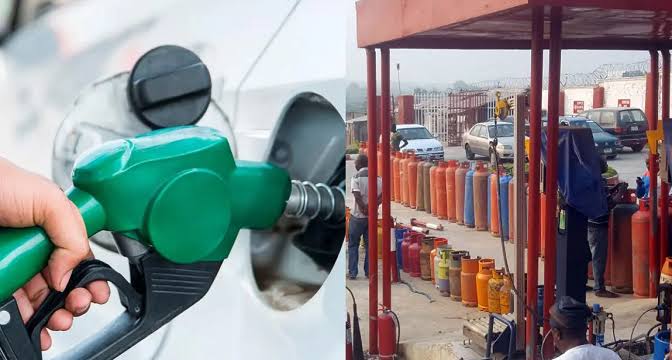BREAKING: How Petrol Price Cuts Are Driving Down The Cost Of Cooking Gas In Nigeria – IPMAN
The Independent Petroleum Marketers Association of Nigeria (IPMAN) has attributed the recent decline in cooking gas prices to the reduction in the cost of Premium Motor Spirit (PMS), commonly referred to as petrol.
A market survey conducted by Daily Post revealed that the price of refilling a 12.5kg cylinder of Liquefied Petroleum Gas (LPG) has dropped from ₦17,500 to ₦16,250 at select retail outlets in Abuja, the Federal Capital Territory.
This reflects a new rate of ₦1,300 per kilogram, down from ₦1,400 last month.
At various gas stations across the FCT, the cost of 1kg of LPG now ranges between ₦1,050 and ₦1,150, compared to previous rates of ₦1,200 to ₦1,400 depending on location.
In Lagos, the price for refilling a 12.5kg cylinder has also seen a significant reduction. As of April 2025, residents are paying approximately ₦13,750, down from ₦17,283.58 recorded in November 2024, according to data from the National Bureau of Statistics (NBS).
Other states such as Edo, Delta, and Niger have also witnessed similar price drops, with customers saving at least ₦1,000 on average when purchasing either a full 12.5kg refill or smaller quantities.
This decline in LPG prices comes on the heels of a reduction in petrol prices, which have fallen to between ₦910 and ₦950 per litre—down from previous rates of ₦940 to ₦970 at Nigerian National Petroleum Company Limited (NNPCL) outlets and retail stations affiliated with Dangote Refinery.
The Nigerian Midstream and Downstream Petroleum Regulatory Authority (NMDPRA) reports that national LPG consumption stands at 1.4 million metric tonnes annually.
Converted, this amounts to 1.4 billion kilograms of LPG. At an average cost of ₦1,300 per kilogram, annual consumer expenditure is projected at ₦1.82 trillion—representing a decrease from a previous estimate of ₦1.96 trillion.
To meet this demand, Nigeria produces 600,000 tonnes of cooking gas locally while importing an additional 800,000 tonnes.
Commenting on the situation, IPMAN’s spokesperson, Chinedu Ukadike, told Daily Post that the LPG price adjustment is a logical consequence of the recent petrol price decline.
“When the petrol price was high, liquefied petroleum gas was used as an alternative to fuel for some generators.
“Now that the price of petrol is going down, the LPG marketers and producers have dropped their prices in line with the international factor and exchange rate.
“The alternative choice of energy in the downstream sector has impacted the prices of competing petroleum products. The pricing of petroleum products affects the behaviours of consumers.
“That is the beauty of deregulation.
“The price may drop further in the coming month depending on the international and domestic market matrix,” he said.




